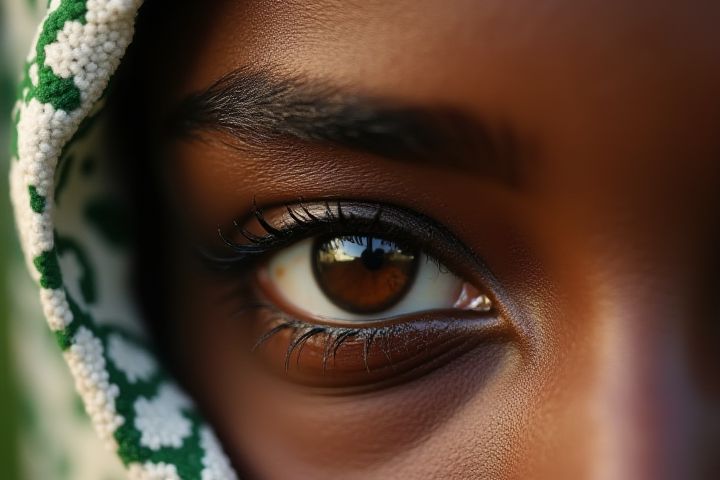
Nigeria is a diverse country with a significant population of both Muslims and Christians. Approximately 50% of Nigerians identify as Muslims, predominantly residing in the northern regions, while Christians are mainly found in the south and central areas. The two religious groups often coexist, influencing the nation's culture, politics, and social dynamics. Islam in Nigeria has a rich history, with traditions such as Sufism playing a vital role in many communities. Understanding this religious landscape is essential for grasping the complexities and daily life experiences in the country.
Nigeria's population is almost evenly split between Muslims and Christians.
Nigeria's population comprises approximately 206 million people, with a near equal distribution between Muslims and Christians. The northern regions predominantly practice Islam, while Christianity is more prevalent in the southern areas. This religious diversity significantly influences Nigeria's culture, politics, and social dynamics, shaping the country's rich tapestry of traditions and festivals. Understanding these religious affiliations is crucial for anyone looking to grasp the complexities of Nigerian society.
The northern region of Nigeria has a Muslim majority.
The northern region of Nigeria is predominantly Muslim, reflecting a rich tapestry of Islamic culture and traditions. Cities such as Kano and Sokoto serve as historical centers of Islamic scholarship and commerce, influencing both regional and national dynamics. The Islamic population engages deeply in various forms of worship, education, and community service, contributing significantly to the local economy and social fabric. You may also observe the coexistence of diverse ethnic groups and communities, enriching the unique cultural landscape of northern Nigeria.
The southern region primarily comprises Christians.
Nigeria exhibits a rich tapestry of religious diversity, with Islam predominantly concentrated in the northern region while Christianity is primarily practiced in the southern areas. The southern region, encompassing states such as Lagos, Rivers, and Enugu, showcases a vibrant Christian population that celebrates various denominations, including Catholicism and Pentecostalism. This religious dichotomy has significantly influenced Nigeria's cultural dynamics, political landscape, and social interactions. Understanding Nigeria's religious composition is crucial for appreciating the country's complexity and the interactions between its different communities.
Sunni Islam is the predominant branch practiced.
In Nigeria, Sunni Islam is the predominant branch of the Muslim population, comprising approximately 85% of the country's Muslim adherents. The northern regions, including states like Kano and Borno, showcase a rich cultural heritage interwoven with Islamic traditions and practices. Various Islamic schools and institutions play significant roles in the educational landscape, promoting Quranic studies and the teachings of the Prophet Muhammad. The vibrant cities reflect a unique blend of traditional customs and contemporary Islamic influences, making Nigeria one of the most diverse Islamic nations in Africa.
Sharia law is implemented in several northern states.
Nigeria has a significant Muslim population, especially in the northern regions, where Sharia law has been implemented in several states. This legal framework governs various aspects of life, including family law, morality, and criminal justice, reflecting the cultural and religious values of the local communities. States such as Kano and Zamfara strictly enforce Sharia, impacting daily life, economic activities, and social norms. Understanding Sharia's role in these areas is essential for grasping the complex interplay of religion, law, and governance in Nigeria.
Nigeria is a secular state by constitution.
Nigeria is defined as a secular state in its constitution, ensuring that all religions have equal status under the law. While approximately half of the population identifies as Muslim, primarily in the northern regions, the country is also home to a significant Christian population, especially in the south. This religious diversity influences various aspects of Nigerian society, including politics, culture, and social dynamics. Understanding Nigeria's secular framework is essential for navigating its complex interfaith relationships and the pluralistic nature of its communities.
Religious festivals are widely observed nationwide.
Nigeria is home to a significant Muslim population, primarily concentrated in the northern regions, where Islamic traditions and festivals are deeply embedded in the culture. Major religious observances, such as Eid al-Fitr and Eid al-Adha, are celebrated with vibrant communal prayers, feasting, and charitable giving, reflecting the values of community and generosity. The month of Ramadan sees various activities, including fasting from dawn until sunset, which fosters spiritual reflection and communal bonding. As a diverse nation, the coexistence of various faiths enriches Nigeria's cultural fabric, showcasing a commitment to religious tolerance and understanding.
Interfaith relations can be tense in some areas.
Nigeria, with a significant Muslim population primarily in the northern regions, often experiences interfaith tensions, particularly between Muslims and Christians. These tensions can arise from historical grievances, socioeconomic disparities, and competition for resources. Efforts to foster interfaith dialogue and promote understanding through community programs are essential for peace-building. You can explore initiatives aimed at reducing conflict and enhancing collaboration between diverse religious groups in Nigeria.
Jama’atu Nasril Islam and Christian Association of Nigeria are major religious bodies.
Nigeria is home to a diverse religious landscape, prominently featuring Islam and Christianity. The Jama'atu Nasril Islam serves as a significant umbrella organization for Muslims, advocating for Islamic values and addressing community concerns. Conversely, the Christian Association of Nigeria represents the interests of various Christian denominations, promoting religious unity and social justice across the nation. This dynamic between the two organizations exemplifies the ongoing dialogue and sometimes tension in Nigeria's multi-religious society.
Religious diversity influences Nigeria's culture and politics.
Nigeria's religious landscape is characterized by significant diversity, with Islam and Christianity being the two predominant faiths. The northern regions of Nigeria are predominantly Muslim, where Islamic traditions and beliefs shape cultural practices and political dynamics. In contrast, the southern regions are primarily Christian, leading to a rich tapestry of cultural expressions influenced by various denominations. This interplay of religions fosters a complex societal structure, impacting everything from local governance to national policies, and highlighting the necessity for interfaith dialogue and understanding in maintaining social cohesion.
